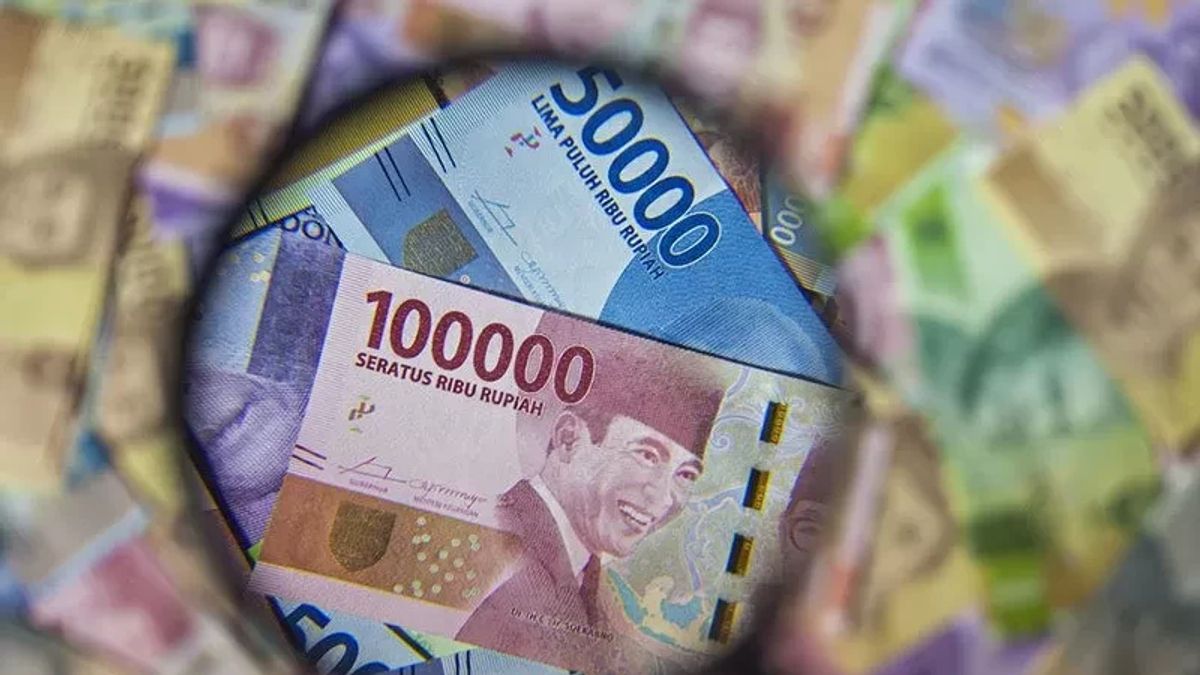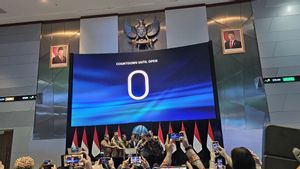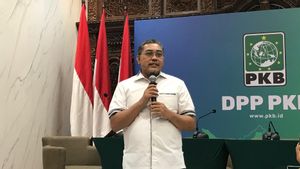JAKARTA - Kaleidoscope throughout 2023, the Indonesian government continues to strive to maintain economic stability and recovery. Moreover, the economy is not doing well after the easing of COVID-19.
This was revealed by Finance Minister Sri Mulyani some time ago that Indonesia must be aware of the weakening of the global economy, especially China. Where, China is Indonesia's largest global trading partner.
In addition, the impact of el nino in Indonesia is also quite stressful for Indonesia, especially the lower class. The occurrence of El Nino resulted in a surge in commodity prices such as rice which triggered high inflationary pressures.
The high interest rate in developed countries and the weakening outlook for the global economy have a very pronounced impact in the economy and society.
This is evident from data from the Central Statistics Agency (BPS) which shows that Indonesia's economy in the third quarter of 2023 is 4.94 percent year on year (yoy).
The growth rate of gross domestic product (GDP) only grew 1.6 percent quarter-on-quarter (qtq) if it was determined in the second quarter of 2023 by 5.17 percent on its knowledge. The value in the third quarter of 2023 is also lower than the third quarter of 2022 which had reached 5.73% (yoy).
The Head of BPS, Amalia Adininggar Widyasanti, acknowledged the decline. According to him, the pattern of decreasing Indonesia's economic growth often occurs when entering the third quarter.
"This is indeed in line with the pattern in the previous year, where economic growth in the third quarter was always lower than in the second quarter, except for 2020 during the Covid-19 pandemic," said Amalia.
In addition to seasonal factors, the decline in economic growth also occurred due to weakening exports and imports in the third quarter of 2023. It was noted that exports contracted 4.26 percent and imports also contracted 6.18 percent (yoy).
Therefore, the Indonesian government issued several policy packages, from rice assistance, tax incentives to direct cash assistance (BLT).
Here are some government policies in the economic and business fields throughout 2023:
1. BLT El Nino and Additional Rice Aid
Meanwhile, the first policy package is the thickening of social assistance in the form of additional rice assistance and Direct Cash Assistance (BLT). This policy aims to maintain purchasing power, price stabilization, and inflation control.
This policy includes the provision of additional 10 kg of rice assistance which will be given to 21.3 million beneficiary groups during December with a total budget of IDR 2.67 trillion.
Meanwhile, BLT will be given IDR 200 thousand per month to 18.8 million beneficiary groups during November to December with a total budget of IDR 7.52 trillion.
2. Accelerate MSME KUR Distribution
The next policy package is aimed at optimizing the role of MSMEs through accelerating the realization of People's Business Credit (KUR). This is done to facilitate distribution and increase the implementation that has stalled throughout Semester I.
The acceleration of distribution of the KUR program is carried out through weekend banking, so that the absorption of KUR distribution is expected to increase and be more optimal. The realization of KUR in September 2023 reached IDR 177.5 trillion and is expected by the end of 2023 to be IDR 297 trillion.
3. Free of Home VAT and Administrative Fee Assistance for MBR
Furthermore, the government strengthened the housing sector to boost activities in the housing construction sector and at the same time help low-income people to get a house.
The form of the policy is the provision of VAT DTP (Government Borne) for the sale of new houses at a price below IDR 5 billion, but what is borne by the government is the Tax Imposition Basis (DPP) of up to IDR 2 billion for 14 months from November 2023 to December 2024.
VAT-DTP is given with the provisions, from November 2023 to June 2024, VAT DTP is given 100 percent, and from July 2024 to December 2024, VAT DTP is given at 50 percent.
In addition, the government also provided Administrative Fee Assistance (BBA) for 14 months amounting to IDR 4 million per house. From November to December 2023, 62 thousand units were given, and in the 2024 period it was given to 220 thousand units. So that the total estimated budget requirement is IDR 3.7 trillion for 2023 and 2024.
4. Integrated Prosperous Houses (RST)
Support is also given to the addition of the target of assistance for Integrated Prosperous Homes (RST) for the poor as many as 1.8 thousand houses from November to December 2023. The RST assistance reaches Rp. 20 million per house.
5. Share Rice Cooker
The government also distributed electricity-based cooking tools (AML) in the form of rice cookers as many as 500,000 units. This is regulated in the Regulation of the Minister of Energy and Mineral Resources No.11 of 2023 concerning the Provision of Electrically-Based Cooking Equipment for Households.
Meanwhile, the target household recipients of AML are PLN or PLN Batam customers with 450 VA to 1,300 VA power which is domiciled in the area with 24-hour electricity on, the household does not have AML
6. Electric Vehicle Incentives
The government also provides incentives for battery-based imports of electric motorized vehicles (KBL) in complete condition or completely build-up (CBU). This is regulated in Presidential Regulation (Perpres) Number 79 of 2023 concerning Amendments to Presidential Regulation Number 55 of 2019 concerning Acceleration of Battery-Based Electric Motor Vehicle Programs for Road Transportation.
"A battery-based KBL industry company that procures battery-based KBL originating from imports is intact as referred to in Article 12 can be given incentives," Article 18 wrote in the regulation.
Meanwhile, referring to Article 12, KBL industrial companies are allowed to get incentives in the process of importing a complete electric vehicle which will be given a quota based on the realization of development, investment, and/or increase in battery-based KBL production.
This means that these incentives are aimed at KBL industrial companies that are already committed to investing in electric vehicles.
SEE ALSO:
Article 19A paragraph (1) states that the incentives provided can be in the form of import duties on battery-based KBL imports in a complete state (completely build-up/CBU) or incentives for import duties borne by the government on battery-based KBL imports in a complete state.
Then, the government also provides PPnBM incentives for Battery-Based KBL in a complete state or government-borne PPnBM incentives (DTP), as well as incentives for braking or reducing regional taxes for battery-based KBL in a complete state.
Meanwhile, the impact of the economic policy package is expected to encourage the increase in the growth of the national Gross Domestic Product (GDP) in the fourth quarter of 2023 by 0.2 percent.
With this policy, the government believes that the Indonesian economy can survive global uncertainty. In addition, the existence of this policy package, it is hoped that Indonesia's economic growth can be maintained at 5.06 percent in the fourth quarter of 2023.
The English, Chinese, Japanese, Arabic, and French versions are automatically generated by the AI. So there may still be inaccuracies in translating, please always see Indonesian as our main language. (system supported by DigitalSiber.id)













